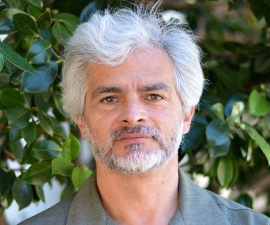

Research Bio
The Laboratory of Microbial Ecology is focused on a relatively small segment of the very large and disparate group of invisible life forms we call "microbes". They work with eukaryotic microbes, and are most focused on those eukaryotic microbes living in terrestrial ecosystems. That would mean the unwieldy and multifarious collection of life forms we call fungi. In those terrestrial ecosystems they ask simple questions: Where are microbes? How many of them? These are the basic questions of ecology: establishing patterns of abundance and distribution of organisms.
For traditional ecologists, there was no question about the identity of the organism at stake: in a given place, deer are deer and wolves are wolves. Not so for microbes, where a given organism can take multiple shapes (for example filamentous fungi turning into yeasts and viceversa; spores of various kinds can lead to multiple variations on the hyphal theme, and so on), and indistinguishable cellular structures can belie quite different phylogenetic and ecological characters.
Their current attempt to deal with this problem is to develop methods and instrumentation to allow real mapping, at geographical scales, of microbial organisms, with DNA-sequence specificity.
Research Expertise and Interest
agriculture, biotechnology, environmental science, microbial biology, policy and management
